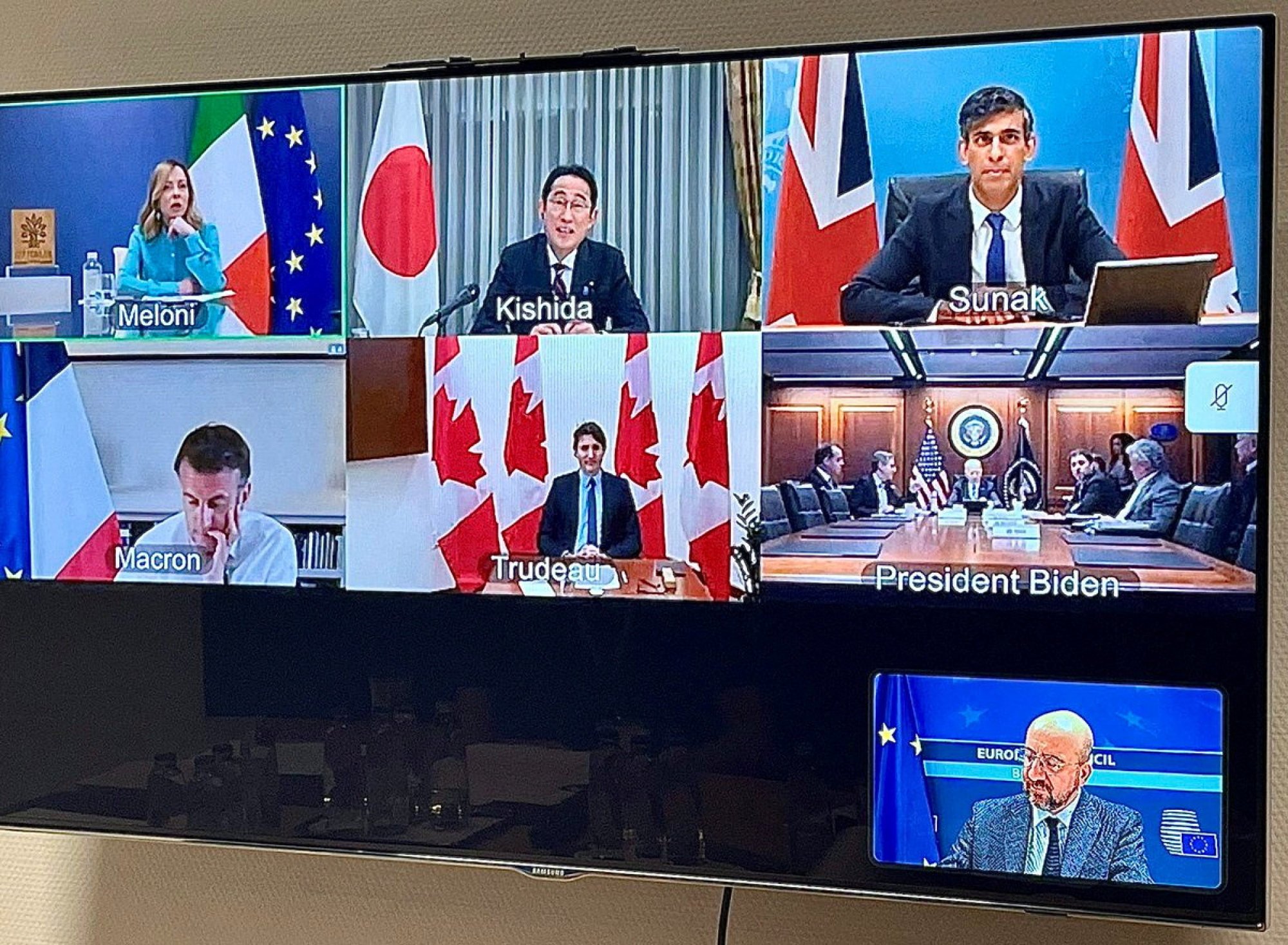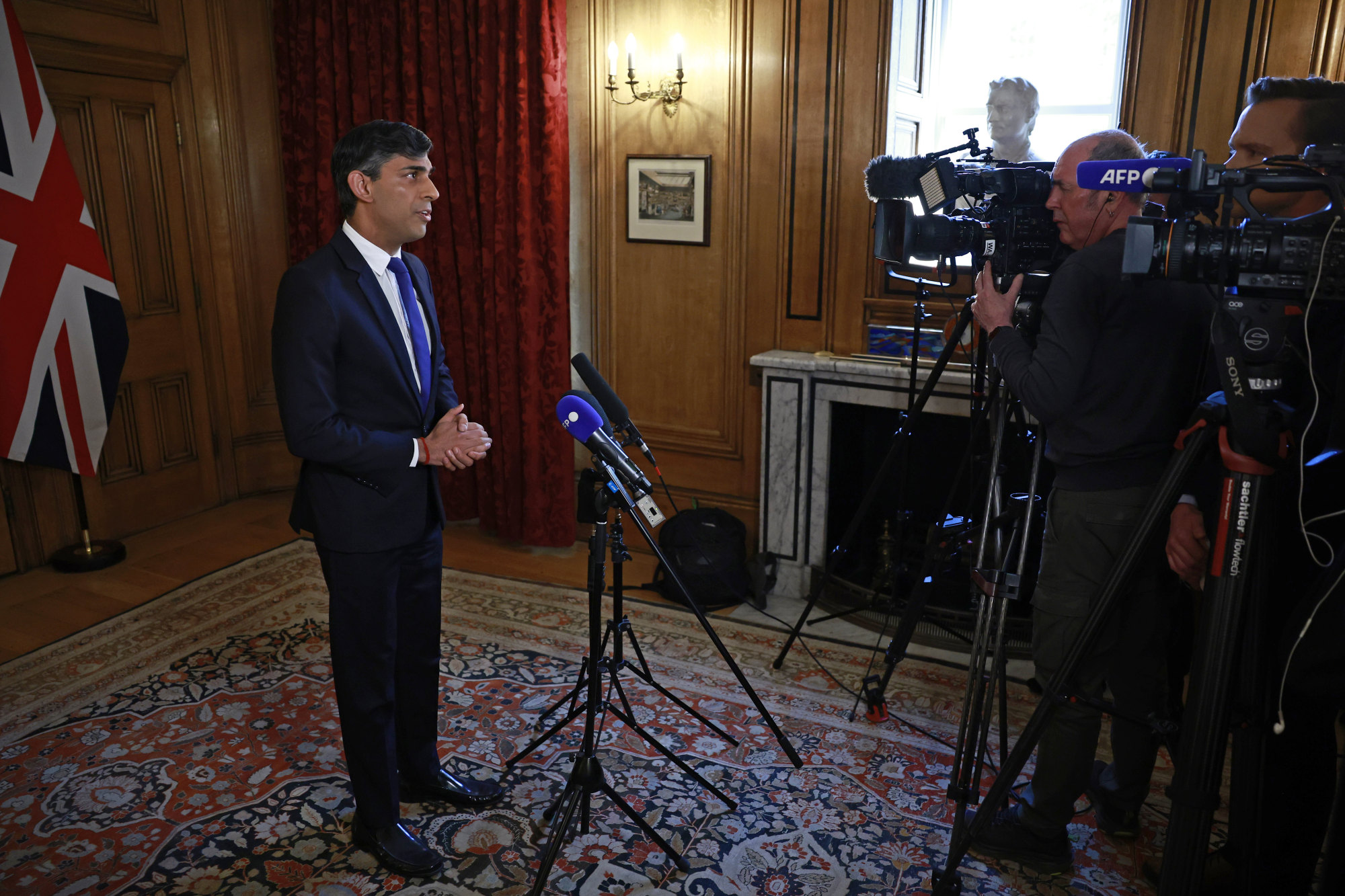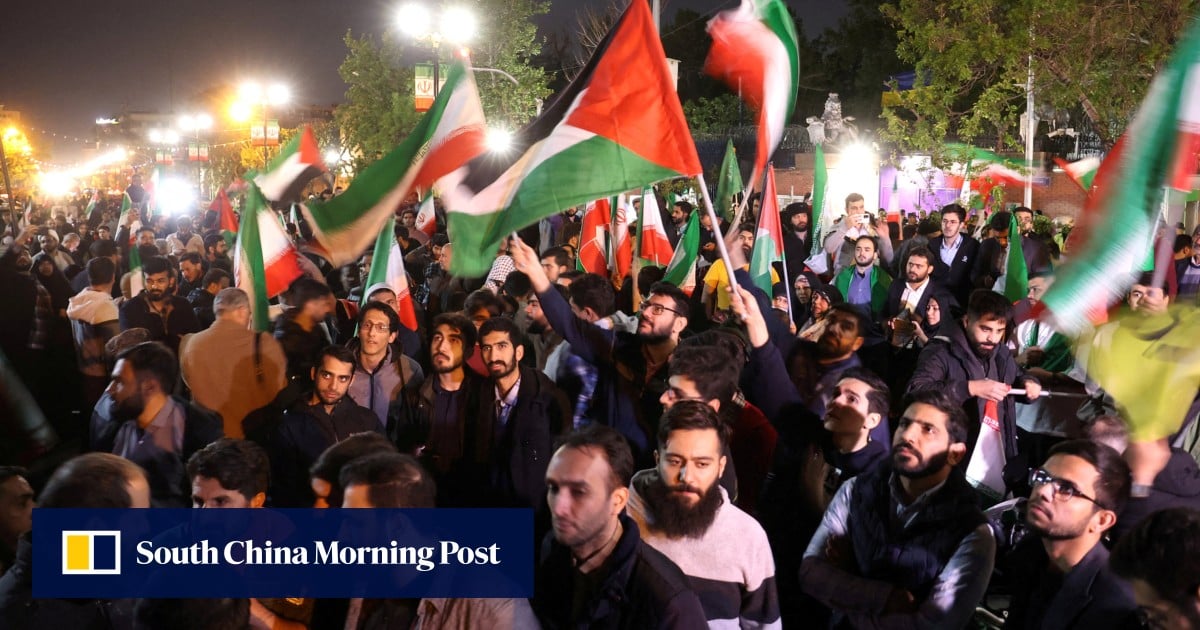The G7 leaders said they will bolster “our cooperation to end the crisis in Gaza, including by continuing to work towards an immediate and sustainable ceasefire and the release of hostages by Hamas, and deliver increased humanitarian assistance to Palestinians in need”.
The Israeli foreign ministry, meanwhile, said one immediate response to Iran’s missile and drone attacks would be to classify Iran’s Islamic Revolutionary Guard Corps (IRGC), which carried out the attacks, as a terrorist organisation.
According to a statement on Sunday, which Foreign Ministry spokesman Lior Haiat also posted on social media platform X, formerly Twitter, Israel would also impose “painful sanctions” on Iran, including on the area of missile development.
The Iranian attack was accompanied by additional terrorist attacks by Iraqi militias, the Houthi militia in Yemen and Hezbollah in Lebanon, said Haiat.
Haiat said Iran’s attack proves what Israel has been declaring for years, that Iran is the biggest threat to regional stability and the source of the region’s terrorist attacks.
The IRGC, Iran’s elite armed forces, are supposed to protect the state ideology and, above all, prevent a coup. The unit is increasingly being criticised for its involvement in repressive measures at home.
Iran’s attack on Israel ‘brings joy’ to Gaza Palestinians, others cast doubt
Iran’s attack on Israel ‘brings joy’ to Gaza Palestinians, others cast doubt
In the EU, there are legal hurdles to putting the Revolutionary Guards on the terror list, and some experts have argued that this would first require a court decision by a member state.
Sanctions have also been imposed on the IGRC. Iran has threatened to take countermeasures. There has been talk of detaining foreign oil tankers in the Gulf or even blocking the Strait of Hormuz, which lies between the Gulf and the Gulf of Oman.
It is one of the most important shipping routes in the world, through which many oil shipments pass.
“We would not be a part of any response they do,” the Biden administration official told reporters on a call. “We would not envision ourselves participating in such an act.”
Backlash over US support for Israel as China makes ‘public relations gain’
Backlash over US support for Israel as China makes ‘public relations gain’
The US and Israel had been bracing for an attack for days after Iran said it would retaliate for a suspected Israeli strike this month on an Iranian consular building in Syria that killed 12 people, including two senior Iranian generals in the Revolutionary Guard’s elite Quds Force.
Florida Senator Marco Rubio, the top Republican on the Senate Intelligence Committee, criticised the White House for “leaking it to the press” that Biden told Netanyahu to take the win and not retaliate.
Rubio told CNN’s State of the Union that it wast “part of the White House’s efforts to appease” people calling for a ceasefire in Gaza.

The US would continue to help Israel defend itself, Kirby said, but that how Israel responds now will be “up to them”.
Israel’s army said on Sunday that Israel, the US, Britain, France and other allies had come together as a “coalition” for the first time to counter Iran’s unprecedented attack.
“Iran launched over 350 threats, ballistic missiles, cruise missiles, rockets and suicide drones towards Israel and also other countries in the region could have got that threat on the way.”

“We stand by the security of Israel and the wider region, which is of course important for our security here at home, and what we now need is for calm heads to prevail.
“We’ll be working with our allies to de-escalate the situation and I look forward to speaking to G7 leaders later this afternoon.”
Speaking to reporters in Downing Street, Sunak also said that British Royal Air Force planes “did shoot down a number of Iranian attack drones”, confirming reports that Britain had helped Israel and other allies repel the strikes.
Additional reporting by dpa, Associated Press
